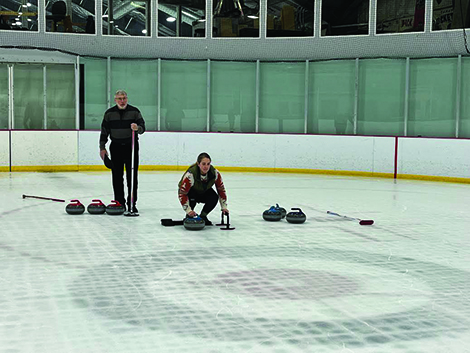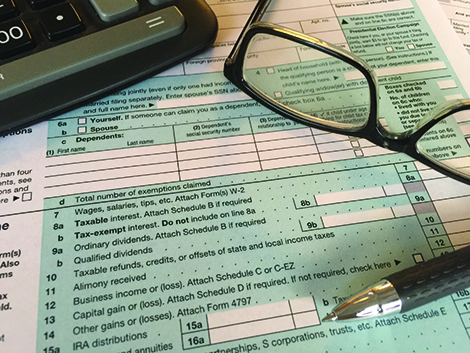Clubs in Tacoma and Seattle are curling’s local hotbeds
Who hasn’t used a broom or pushed a stone, right? But how many people have done both as part of a sport? Answer: The million-plus people worldwide and a fraction of that in the U.S. and the Puget Sound region who are into curling for glory or just for the fun of it.
For everybody else, curling is the quirky Olympic sport that gets its most attention during the Winter Games. In teams generally of four people, players slide granite stones (also called rocks) on a frozen surface toward a target of four concentric circles. Sort of like shuffleboard, but on ice, and with other differences. Teammates use a curling broom, or brush, to help smooth the stone’s path. Friction from the high-energy sweeping melts the surface enough to cause a thin layer of water for the heavy (44 pounds) stone to glide along. Points are scored for the stones that stop closest to the center of the target, or “house.”
The sport’s origin dates to 16th-century Scotland, where the first recorded match was played in 1541 and the sport’s international governing body, the World Curling Federation, is based today. According to the federation, curling has 1.5 million players worldwide, 90 percent of them in Canada, the hotbed of the sport. The U.S. has about 16,000 players, and most of them are registered with 165 curling clubs.
Washington has produced some prominent curlers. Sean Beighton, an Edmonds native, was introduced to the sport at Granite Curling Club in Seattle on his way to becoming coach of the United States team in the 2022 Winter Olympics. He’s also a past U.S. national champion.
The Seattle club is non-profit and holds competitions and classes for all ages at its rink in Seattle.
In Tacoma, the Rainier Curling Club (RCC) offers competition for experienced players and classes for novices at Tacoma Twin Rinks, located at 2645 S. 80th St. To get involved and find out more, go online at psicesports.com or call 253-272-7825.
Stephanie Betts, RCC’s commissioner, said the club has drop-in curling sessions on Monday nights and a “Learn to Curl” program that started last October and “is great for all ages, including seniors.”
Some experienced players are 55 and older “and are more than excited to help teach new players. We have all the equipment needed, so there’s no need to purchase any of the curling gear,” Betts said, adding that the club plans to get some specialized sticks “to help throw the rocks from a standing position for those who have a hard time getting low to the ice.”
Betts is also director of female hockey at Tacoma Twin Rinks, which includes adult and junior hockey and skating among its programs.


